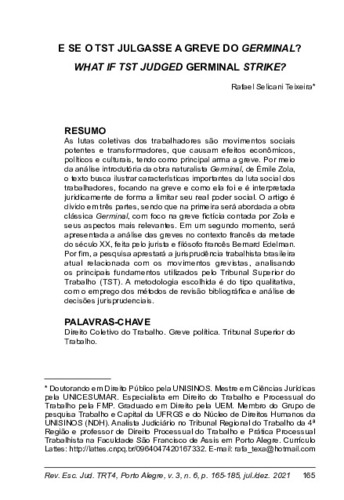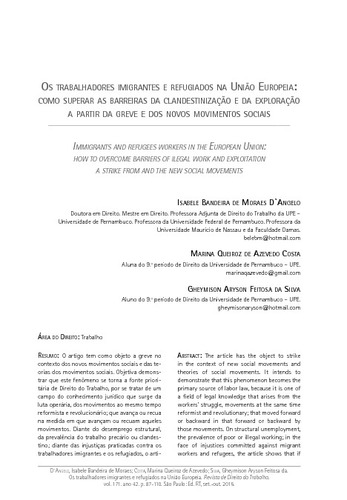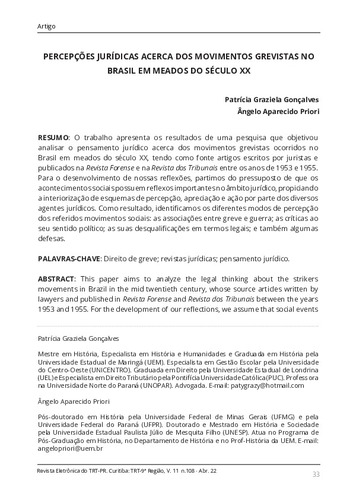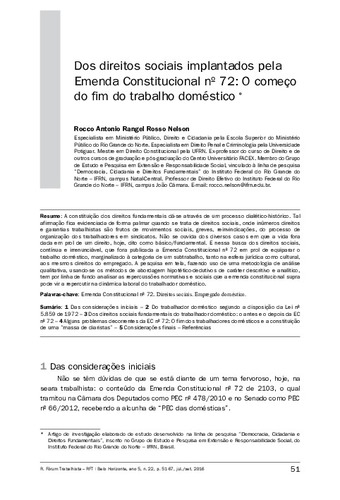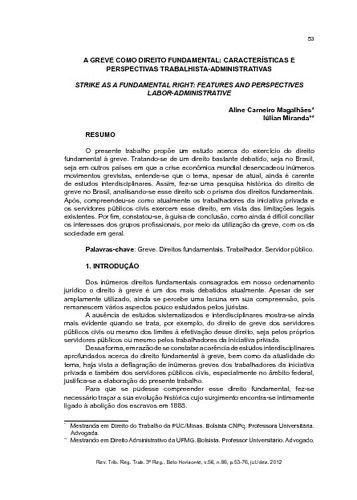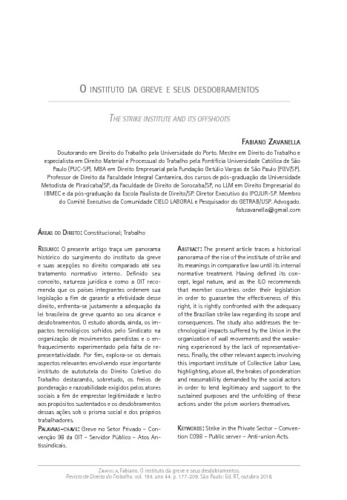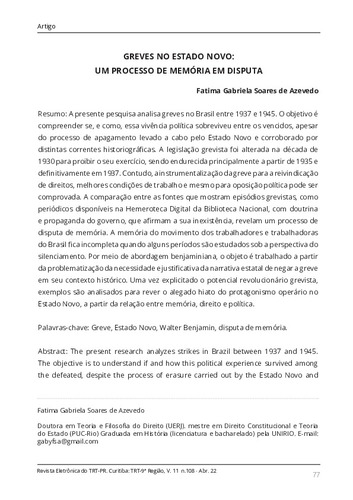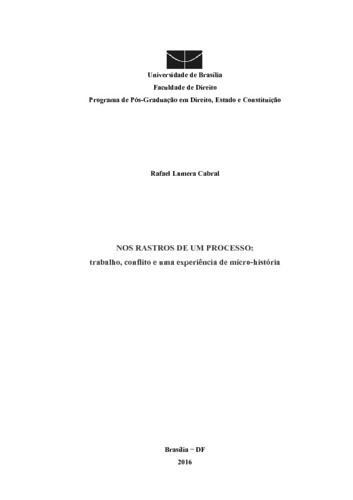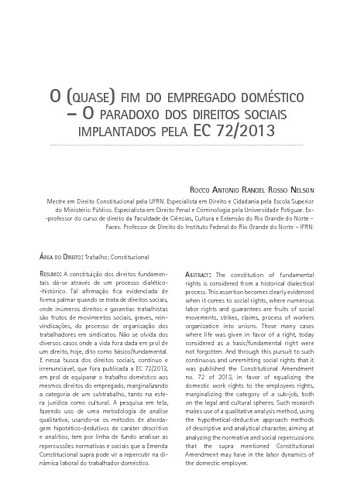Artigo de periódico
E se o TST julgasse a greve do Germinal?
| dc.contributor.author | Teixeira, Rafael Selicani | |
| dc.date.accessioned | 2023-12-05T21:44:20Z | |
| dc.date.available | 2023-12-05T21:44:20Z | |
| dc.date.issued | 2021-12 | |
| dc.identifier.citation | TEIXEIRA, Rafael Selicani. E se o TST julgasse a greve do Germinal? = What if TST judged Germinal Strike? Revista da Escola Judicial do TRT4, Porto Alegre, v. 3, n. 6, p. 165-185, jul./dez. 2021. | pt_BR |
| dc.identifier.uri | https://hdl.handle.net/20.500.12178/225274 | |
| dc.description.abstract | [por] As lutas coletivas dos trabalhadores são movimentos sociais potentes e transformadores, que causam efeitos econômicos, políticos e culturais, tendo como principal arma a greve. Por meio da análise introdutória da obra naturalista Germinal, de Émile Zola, ilustra características importantes da luta social dos trabalhadores, focando na greve e como ela foi e é interpretada juridicamente de forma a limitar seu real poder social. Divide-se em três partes, sendo que na primeira será abordada a obra clássica Germinal, com foco na greve fictícia contada por Zola e seus aspectos mais relevantes. Em um segundo momento, analisa as greves no contexto francês da metade do século XX, feita pelo jurista e filósofo francês Bernard Edelman. Por fim, apresta a jurisprudência trabalhista brasileira atual relacionada com os movimentos grevistas, analisando os principais fundamentos utilizados pelo Tribunal Superior do Trabalho (TST). A metodologia escolhida é do tipo qualitativa, com o emprego dos métodos de revisão bibliográfica e análise de decisões jurisprudenciais. | pt_BR |
| dc.description.abstract | [eng] The collective struggles of workers are powerful and transforming social movements that cause economic, political and cultural effects, with strikes as their main weapon. Through the introductory analysis of the naturalist work Germinal by Émile Zola, the text seeks to illustrate important characteristics of the social struggle of workers, focusing on the strike, and how it was and is legally interpreted in order to limit its real social power. The article is divided into three parts, the first of which will address the classic work Germinal, focusing on the fictional strike told by Zola and its most relevant aspects. In a second moment, the analysis of strikes in the French context of the mid-twentieth century, made by the French jurist and philosopher Bernard Edelman, will be presented. Finally, the research will present the current Brazilian labor jurisprudence related to strike movements, analyzing the main grounds used by the Superior Labor Court. The chosen methodology is qualitative, with the use of literature review methods and analysis of jurisprudential decisions. | pt_BR |
| dc.description.tableofcontents | A greve tem um líder (?) -- A camisa de força jurídica -- Trabalhador pode parar, não politizar | pt_BR |
| dc.language.iso | pt_BR | pt_BR |
| dc.relation.ispartof | Revista da Escola Judicial do TRT4: vol. 3, n. 6 (jul./dez. 2021) | pt_BR |
| dc.subject | Edelman, Bernard, 1938-2020 | pt_BR |
| dc.subject | Zola, Émile, 1840-1902 | pt_BR |
| dc.subject | Greve, aspectos políticos | pt_BR |
| dc.subject | Mineiro (profissão), França | pt_BR |
| dc.subject | Greve, aspectos políticos, França, séc. XX | pt_BR |
| dc.subject | Greve, jurisprudência, Brasil | pt_BR |
| dc.title | E se o TST julgasse a greve do Germinal? | pt_BR |
| dc.title.alternative | What if TST judged Germinal strike? | pt_BR |
| dc.type.genre | Artigo de periódico | pt_BR |
| dc.identifier.rvbisys | 001223728 | |
| dc.relation.ispartoflink | https://hdl.handle.net/20.500.12178/224774 | pt_BR |
Ce document figure dans la(les) collection(s) suivante(s)
-
Artigos9527


